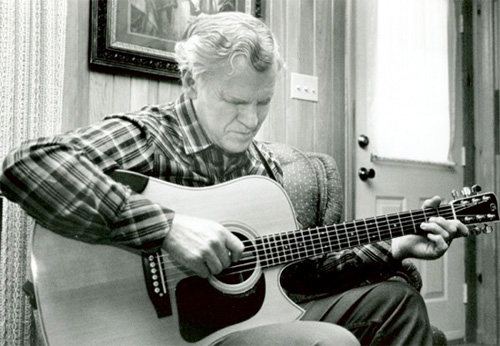“Every year, there’s been much less concern about what instrument each person’s holding,” Scott says. “For the demos on this record, we spent more time on drums and piano than we did on guitar and banjo. It shakes things up and keeps songwriting fresh. Now, the downside is that some of the instruments have taken a back seat and a lateral progression because we’re switching up so much that you don’t maintain a solid foundation on any one. But, if you focus on songwriting, you learn the instruments at hand.”
Videos by American Songwriter
Imagine a songwriting summit between Del McCoury and John Cale and the New York Dolls. The Avetts aren’t too far off. “People expect the bluegrass, but there are also some real punk rock elements to their music, too,” says Nashville-based singer/songwriter Will Hoge, a frequent Avett Brothers touring partner. “The most compelling thing to me is the ground that they cover between those two. My favorite part of a live show is when a band takes you from something really sweet and intimate and quiet to something way more bombastic and loud and frenzied. They do a fine job of mining that territory.”
“I first met the Avett Brothers in New York five or six years ago,” soul-folk songwriter Langhorne Slim recalls. “Nicole Atkins had invited them to do a tiny show at a bar that she was working in at the time. This was their first show in New York and Nicole had called Regina Spektor, Paleface, myself and some other friends to come hear them play. I played a few songs that night and stood and watched them do their thing. We traded numbers and CDs, and I bid them a safe trip back to North Carolina. I left that night in a pleasant mood and feeling like I had made some new friends.
“I was excited to be invited to North Carolina to support them at the [Chapel Hill’s] Cat’s Cradle not long after. Expecting nothing more then a good excuse to head south and do a show, I was in for a treat. Remember, there were maybe 25 people at their first New York show. I get on stage at the Cat’s Cradle and about a thousand Avettheads are going nuts! An Avett crowd is one of the best crowds to play. That’s a fact. There were people young and old freaking out all night. I thought to myself, ‘These guys are like some kind of bluegrass Beatles.’”
Scott Avett streams consciousness like an overfed water main. The 32-year-old constantly multitasks-a blue streak of focus and frenzy-but never once dams any running conversation’s flow. He anticipates follow-ups three deep and mushrooms responses into vibrant spoken-word novellas. Avoid runaway train ramps: Unforeseen twists and turns inspire the most elusive insights. Both brothers burn candles at each end, but Scott stares longer at the flame. In other words, creators exhausted creative compulsion on these two. Scott snuck a second helping.
“Scott is little more frantic, more energetic,” Ramseur says. “He’s kind of like a circus in some ways, or maybe a county fair-coming at you at all times. He’s got a great gift of gab. Seth does, too, but maybe in a sweeter, quieter way. Scott’s not boisterous, but he’s the life of the party. Actually, they both are, but Seth’s a little more reserved. Scott is the one who stays until the end.” Perhaps that explains Scott’s more frequent incursions into less palpable recesses. Scott maybe has yet to witness the literal abyss, but he’s clearly enamored of the hardscrabble journey leading toward its descent.
Fittingly, the elder brother’s earthy poetics-exponentially sharp when traced from the restless reflection “November Blue” to 2008’s elegiac “Souls Like the Wheels” -often directly evoke Van Zandt. “There’s not another writer that I relate to more than Townes,” Scott admits. “I cover ‘Highway Kind’ for my daughter. She’s two-and-a-half months old and she’ll get real quiet when I play the piano when she’s crying. It’s so serious and dark and I just love it. Sometimes I hear a line and I think, I don’t even know what that meant, but, God, it makes so much sense.
“Townes’ depth and despair came out in abstract wording that I relate to quite a bit. I’m in a very direct point of relation with that because I’m living that life and writing songs. I understand the despair that the occupation carries. Townes wrote as he felt, and I’m guessing by default developed an orderly fashion. Now, his despair came in other ways-the alcoholism and all the things working against him-that ultimately killed him. But I try to keep that out of the equation. I have a strong family and friend network that really allows that to stay out of the equation.”
Scott’s most elegant moments demand shrewd awareness, but they undeniably clear more transparent paths than Van Zandt. “Close the laundry door,” he sings on the new “Laundry Room.” “Tiptoe across the floor and keep your clothes on/I’ve had all I can take/Teach me how to use the love that people say you make.” “They do a great job of getting to the core of it,” Hoge says. “There’s a real simplicity to their songwriting, and I mean that as the biggest compliment. Simple songs tend to be my favorites. They’re great with lyrical imagery, and they’re not afraid to let a song stand on its own two feet.”













Leave a Reply
Only members can comment. Become a member. Already a member? Log in.